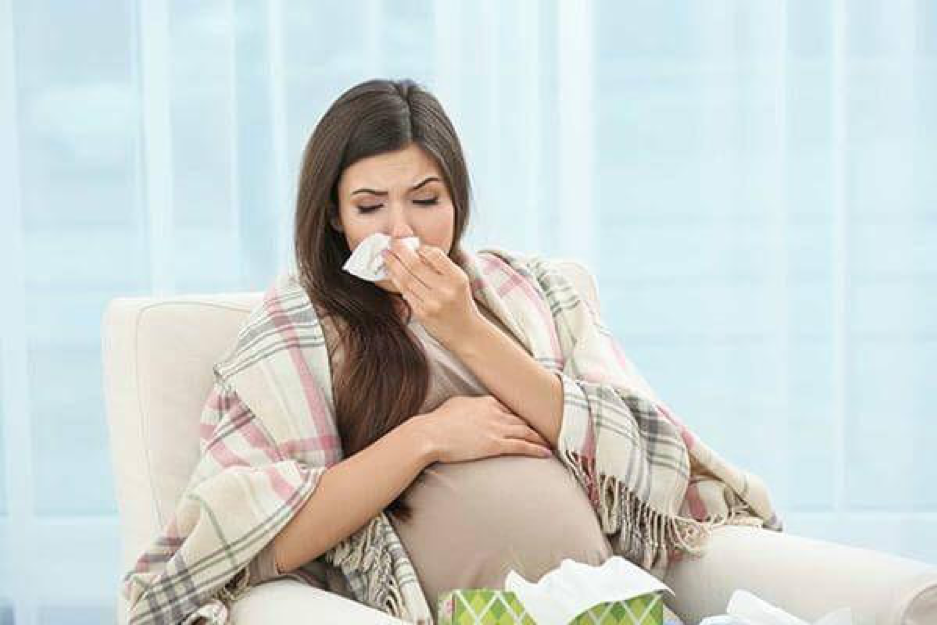About 40% of pregnant women are likely to have a sneezing, runny nose due to flu. This condition can happen at any time, but is usually mainly the first or third trimester of pregnancy, causing discomfort for pregnant women.
In essence, allergic rhinitis or runny nose, sneezing ... during pregnancy may not directly affect the fetus. However, flu is a viral illness, often much more serious than the common cold, indirectly causing many dangerous complications for both mother and baby, if left unchecked. Especially, when the mother has signs of insomnia, stress, fatigue, more severe chronic rhinitis, sore throat.
Runny nose, prolonged rhinitis can lead to decreased oxygen supply in pregnant women while sleeping, thereby affecting the oxygen supply to the fetus, increasing the risk of hypertension, preeclampsia and delayed pregnancy. develop. Continuous sneezing will stimulate uterine contractions, if the frequency is too much, it will threaten miscarriage or premature birth.
Therefore, pregnant women should be proactive in preventing influenza by getting a flu vaccine before becoming pregnant. In the unfortunate case of flu, pregnant women should handle the symptoms quickly, spend a lot of time resting, drink plenty of water to soothe a sore throat. Gargle with warm salt water if you have a sore throat or cough.

Eat plenty of immune-boosting vitamin C foods like oranges, grapefruit, kiwi, pineapple, raspberries, tomatoes, kale, broccoli, spinach, and zinc-rich foods like lean red meat, chicken breast without skins, whole grains, eggs, chickpeas, spinach, broccoli, kale and pumpkin seeds.
If indoors, you should maintain a room temperature of 25-28 degrees Celsius, avoiding drafts. The room temperature should not be too warm, it is easy for the body to heat shock when it is cold outside. Can use air conditioner, heater, fan heater. Absolutely do not use charcoal stoves because CO gas can be toxic and suffocating for babies and people around.
Pregnant women should take precautions against sources of infection, such as limiting contact with people with colds and flu. Do not go to crowded places, stay away from polluted areas. Limit going out when it rains erratically. When going to bed, pregnant women do not lie flat, the wind blows on the face, to prevent stuffy nose. Use the medicine only when prescribed by your doctor. Because many flu drugs can be used for normal people, but when used for pregnant women can lead to miscarriage, malformations, pregnancy toxicity.
In case of prolonged high fever and fatigue, you should go to the hospital early for timely treatment to avoid dangerous complications.
Source: https://vnexpress.net/thai-phu-bi-cum-co-anh-huong-em-be-4538947.html